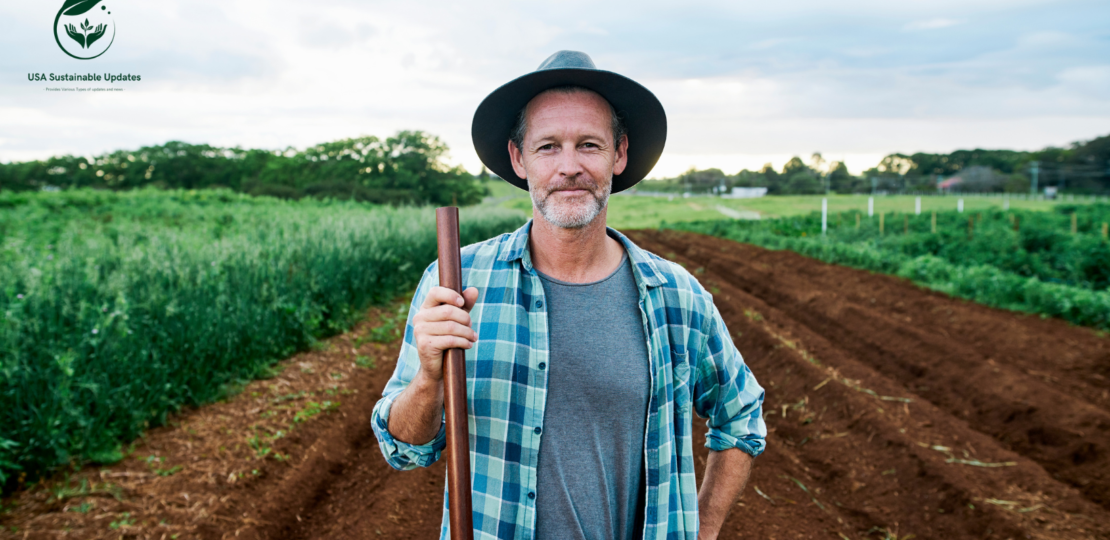
Introduction
Sustainable Practices, Living sustainably and adopting eco-friendly practices have become crucial for preserving the planet and ensuring a greener future for generations to come. By making conscious choices in our daily lives, we can significantly reduce our carbon footprint and contribute to a healthier environment. In this article, we will explore ten easy sustainable practices that can help you lead a greener life, benefiting both you and the planet.

Table of Contents
Reduce, Reuse, and Recycle
The foundation of sustainable living lies in the three Rs: Reduce, Reuse, and Recycle. Reducing waste, reusing items, and recycling materials are fundamental steps in minimizing our impact on the environment. By being mindful of our consumption and opting for reusable alternatives, we can decrease the amount of waste that ends up in landfills and oceans.
To recycle effectively, it is essential to understand local recycling guidelines and sort waste accordingly. Additionally, upcycling and repurposing items can add creativity to sustainability, transforming old objects into something useful and unique.
Sustainable Practices – Energy Conservation
Conserving energy is not only beneficial for the environment but also helps in reducing utility bills. Simple habits such as turning off lights and electronic devices when not in use can make a significant difference. Furthermore, unplugging devices and using energy-efficient appliances can further cut down on energy consumption.

Water Conservation
Water is a precious resource, and conserving it is crucial for sustainability. Fixing leaks promptly and collecting rainwater for non-potable uses are effective ways to save water. Installing water-saving fixtures like low-flow toilets and faucets also contribute to reducing water wastage.
Eco-Friendly Transportation
Transportation is a significant contributor to greenhouse gas emissions. By opting for eco-friendly modes of transport, such as walking, biking, or using public transportation, we can minimize our carbon footprint. Carpooling and ridesharing with others also help in reducing the number of vehicles on the road.

Sustainable Food Choices
Our food choices have a substantial environmental impact. By eating seasonal and locally sourced produce, we support sustainable agriculture and reduce the energy required for transportation. Reducing meat consumption and avoiding food waste are also essential practices for a greener lifestyle.
Adopting Renewable Energy
Transitioning to renewable energy sources is a vital step in combating climate change. Solar power, wind energy, and geothermal systems are sustainable alternatives to fossil fuels. Investing in renewable energy not only benefits the environment but also leads to long-term cost savings.

Green Gardening
Gardening can be made eco-friendly by adopting organic practices and avoiding harmful chemicals. Composting kitchen waste creates nutrient-rich soil while reducing the amount of organic waste that ends up in landfills. Planting trees and native species also contribute to biodiversity and help in carbon sequestration.
Eco-Friendly Cleaning
Traditional cleaning products often contain harmful chemicals that can be detrimental to both human health and the environment. Switching to natural cleaning products or making homemade solutions using ingredients like vinegar and baking soda is a safer and more sustainable choice. Moreover, reducing single-use plastic cleaning items is essential for waste reduction.
Conscious Consumerism
Being a conscious consumer involves making informed choices about the products we buy. Opting for sustainable and eco-friendly products, supporting ethical brands, and avoiding excessive packaging can significantly reduce our ecological footprint.

Engaging in Community Initiatives
Joining local environmental groups and participating in clean-up events are great ways to get involved in your community and contribute to environmental preservation. Spreading awareness about sustainability issues and inspiring others to adopt greener practices can create a positive ripple effect.
Teaching Sustainable Habits to Children
Environmental education plays a crucial role in shaping future generations. Teaching children about sustainable practices and the importance of caring for the planet instills a sense of responsibility and eco-consciousness from an early age. By fostering these values, we can create a sustainable legacy for the future.
Overcoming Challenges in Living Sustainably
Transitioning to a greener lifestyle may come with challenges, especially in a world dominated by convenience culture. Overcoming these challenges requires determination and perseverance. It’s essential to make gradual changes and seek support from like-minded individuals or communities on the sustainability journey.
The Psychological Benefits of Green Living
Living in harmony with nature and practicing sustainable habits can positively impact our mental well-being. Studies have shown that spending time in nature and engaging in eco-friendly activities can reduce stress and anxiety, fostering a sense of connectedness with the natural world.

Conclusion
Living a greener life is not only beneficial for the environment but also for our own health and well-being. By incorporating these ten easy sustainable practices into our daily routines, we can collectively contribute to a more sustainable future. Remember, even small changes can make a significant difference when multiplied by millions of people. Let us all take responsibility for the planet and strive for a greener, more sustainable world.
FAQs
- How can I start living a greener life if I’m new to sustainability? Embrace a gradual approach by starting with small changes, such as using reusable bags and reducing single-use plastic.
- Are solar panels a practical option for every home? Solar panels can be a viable option for many homes, but factors like location and budget should be considered. Consult with a professional to determine the best solution.
- What are some sustainable alternatives to plastic packaging? Look for products packaged in eco-friendly materials like glass, cardboard, or biodegradable plastics.
- Can sustainable practices save me money in the long run? Yes, many sustainable practices, such as energy conservation and reducing food waste, can lead to cost savings over time.
- How can I inspire others in my community to adopt sustainable practices? Lead by example, share your experiences, and organize local events focused on sustainability to create awareness and inspire action.
- Is composting difficult to do at home? Composting is actually quite simple and can be done in small spaces too. With the right mix of kitchen scraps and yard waste, you can create nutrient-rich compost for your garden.
- What are some eco-friendly alternatives to household cleaning products? There are several eco-friendly cleaning options, including using vinegar, baking soda, and lemon juice for general cleaning. Additionally, there are many natural and biodegradable cleaning products available in stores.
- How can I reduce my water consumption in daily activities? To reduce water usage, take shorter showers, turn off the tap while brushing your teeth, and fix any leaks promptly. Collecting rainwater for outdoor use is also a great way to conserve water.
- Are there any government incentives for adopting renewable energy? Yes, many governments offer incentives like tax credits and rebates for installing solar panels and other renewable energy systems to encourage sustainable practices.
- Can sustainable practices help combat climate change? Absolutely! Adopting sustainable practices collectively can significantly reduce greenhouse gas emissions and play a vital role in mitigating climate change.
for more information you can visit our Blog, Thanks for reading.

RELATED POSTS
View all



